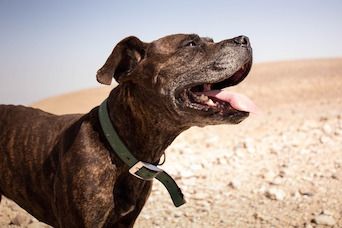University Awarded $4.8 Million to Fight Valley Fever
The National Institutes of Health has awarded a $4.8 million grant to the University of Arizona for continued development of a vaccine against valley fever that will protect dogs and, eventually, humans.

An estimated 60,000 dogs and 30,000 people in Arizona alone get sick every year from coccidioidomycosis, commonly known as valley fever. Now, this lung infection, which is seen primarily in desert regions in Arizona, California, and other southwestern states, may soon be preventable.
The University of Arizona (UA) has received a $4.8 million, 4-year grant from the National Institutes of Health (NIH) to continue development of the delta-CPS1 vaccine and bring it to market.
The live vaccine was invented by Marc Orbach, PhD, a fungal geneticist at UA. While delta-CPS1 has been tested in mice successfully, the vaccine has yet to be tested in dogs.
John Galgiani, MD, director of the UA Valley Fever Center for Excellence and principal investigator of the NIH grant, said it’s a strategic decision to develop the vaccine for dogs first. “We will see if it’s harmful for dogs, see if it works,” he said. “It will make the momentum to go to humans that much stronger.”
RELATED:
- Tetravalent Vaccine Nobivac L4 Protects Against Leptospira
- WVC 2017: An Immunotherapy Vaccine for Canine Cancer
There is currently no way to prevent or cure valley fever. Dangerous and potentially deadly, the infection can be contracted only by inhaling dust containing Coccidioides microspores.
The infection is similar in people and pets but is not zoonotic. Once transmitted, it can take two forms: primary and disseminated. Primary disease is focused within the lungs. Signs and symptoms in people and pets include coughing, fever, lack of appetite, lethargy, weight loss, and depression; humans may also experience rash, chest pain, night sweats, muscle aches, and headaches. In disseminated disease, infection spreads from the lungs to other parts of the body, most commonly the bones and joints. Lameness often ensues.
In people, symptoms may last for months but usually resolve on their own. However, some people go on to develop more serious disease. Arizona officials noted that valley fever contributed to the deaths of 54 people in the state last year.
Valley fever can be deadly in dogs that have a weak immune system, such as young puppies, older dogs, and dogs suffering from concurrent illness. Dogs are highly susceptible to valley fever most likely because they sniff the ground and dig in dirt, potentially inhaling large numbers of infection spores.
For dogs diagnosed with valley fever, lengthy treatment with antifungal medications is required depending on the severity of the infection. Usually daily treatment is required for 6 to 12 months at a cost of $4 to $4 per day.
If the fungus reaches the nervous system, dogs may need to remain on the medication for their entire lives. Many dogs that become infected are euthanized due to the high cost and length of the current treatment options, as well as the expensive blood tests and veterinary costs.
Lisa Shubitz, DVM, a research scientist at the UA Valley Fever Center for Excellence who is part of the vaccine development team, has seen the effects of canine valley fever on many of her patients, as well as her own dogs. “[The grant] should drive us a long way,” she said. “I am ecstatic and this is exactly the kind of funding we needed to get this ready for clinical trials in dogs.”
Anivive Lifesciences Inc., a California-based biotechnology company, has licensed the vaccine from UA and will provide additional investment and expertise to fully develop the canine vaccine.
Following development and testing, the canine vaccine will need to go through the US Department of Agriculture Center for Veterinary Biologics to get to market. According to Dr. Galgiani, delta-CPS1 could hit the market as soon as 5 years from now. The human version of the vaccine, which will require approval from the US Food and Drug Administration, will take a bit longer.